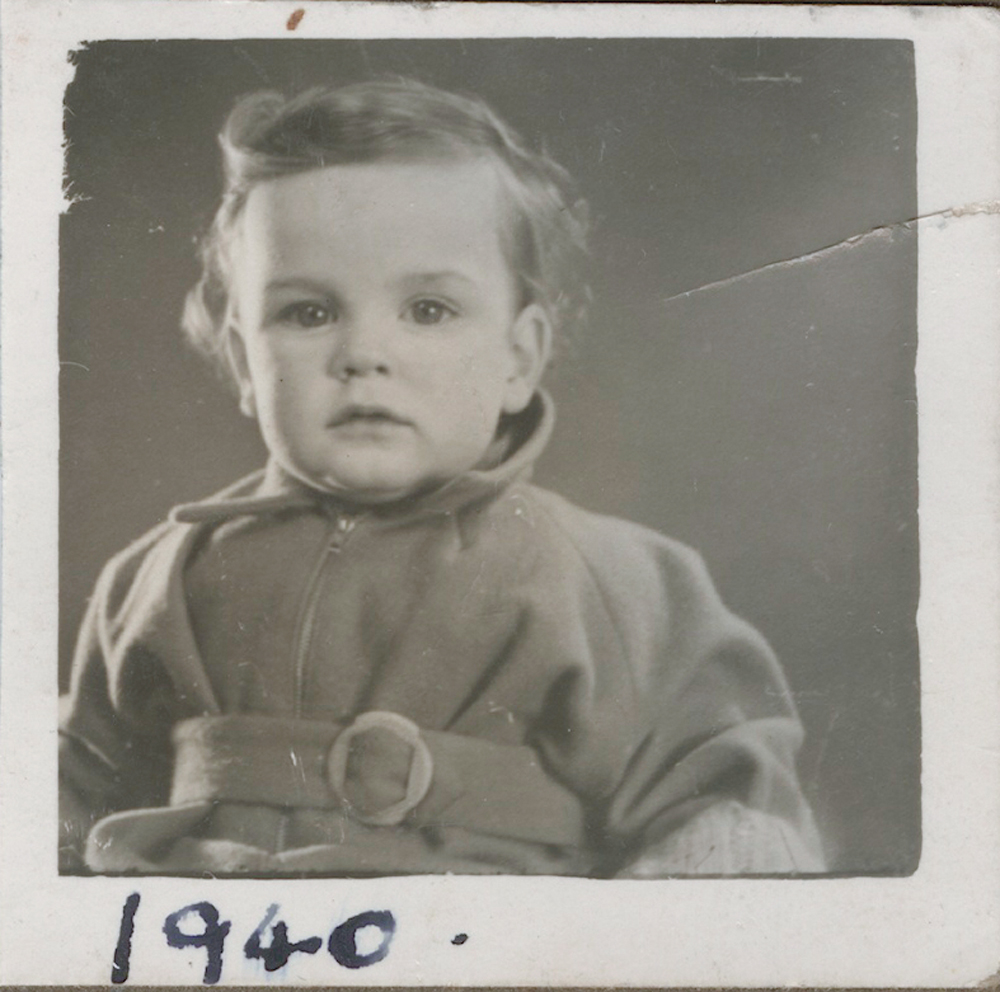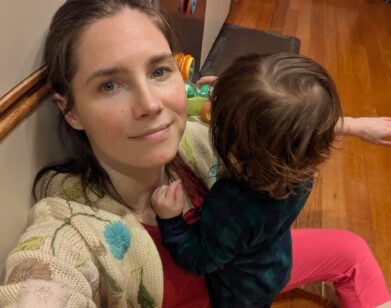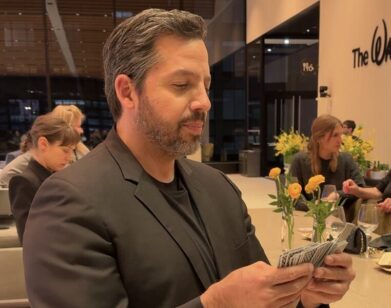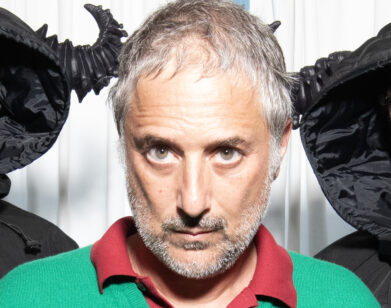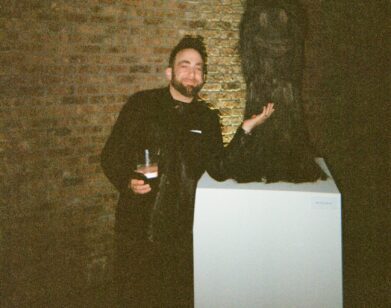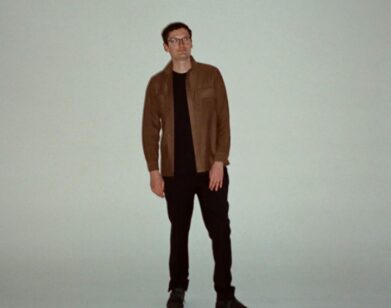John Cleese and the Key to Comedy
It seems almost needless, if not superfluous, to write an introduction for John Cleese. One of the most prolific (and tall) figures in British comedy, Cleese was one of the founders of the legendary Monty Python comedy group alongside Graham Chapman, Terry Gilliam, Terry Jones, Eric Idle, and Michael Palin. The sextet created the surrealist and absurdist sketch program Monty Python’s Flying Circus, which ran from 1969-1974 (“Nobody expects the Spanish Inquisition!”), and went on to make films including 1975’s Monty Python and the Holy Grail (“Your mother was a hamster and your father smelt of elderberries”) and 1979’s Monty Python’s Life of Brian (“He’s not the Messiah. He’s a very naughty boy! Now piss off!”). Their comedy spurred thousands of memorable jokes—often salacious, conceptual, and not conforming to classicized punchlines—and the admiring term “Pythonesque” in the process. Following the group’s demise, Cleese co-created, co-wrote, and starred as the misanthropic and arrogant hotel owner Basil Fawlty in Fawlty Towers (“I think I’ll have a lie down. No I won’t, I’ll go and hit some guests”) alongside his then-wife Connie Booth, one of the most popular British television sitcoms of all time. A steady career in both film and television followed.
Now, Cleese can add one more title to his celebrated comedic curriculum vitae: memoirist. In So, Anyway…, released last week via Crown Archetype, Cleese chronicles his pre-Python years from his only-child familial upbringing in the snoozy seaside town of Weston-super-Mare to his subsequent schooling at St. Peters Preparatory School and Clifton College, where he learned how to make his fellow peers laugh. His interest in comedy was honed when he enrolled at Cambridge University to study law, where he found himself successfully joining the esteemed Footlights theatrical club, which led to a short-lived comedy writing job at the BBC for radio before he and his fellow Footlighters were offered to take their humor revue, “Cambridge Circus,” on a lengthy international tour. Writing gigs for The Frost Report (at the personal invitation of David Frost) and At Last the 1948 Show followed. The rest, as we know, is history, and the journey from a shy and gangly young man to a cool and confident king of comedy was never funnier.
Earlier this week, Interview called Cleese at his hotel room in Manhattan to discuss his memoir, comedy, and everything in between.
DEVON IVIE: Many thanks for scheduling me in. I can’t imagine how busy your publicity tour has been.
JOHN CLEESE: Oh no, I should be thanking you. For some reason, this year is much more interesting than the years I’ve promoted movies. The book seems to mediate much more interesting chats, more like conversations.
IVIE: I’m glad to hear. First off, I thoroughly enjoyed the book…
CLEESE: Good! I read a review of it in The Wall Street Journal that was really unpleasant. I was quite shocked as to how nasty it was. I can understand if they say it’s boring or that it’s not funny, because I know how subjective a sense of humor is. What do you think would annoy people in the book? It’s a mystery to me.
IVIE: That’s indeed a mystery. How did you settle on the title, So, Anyway…?
CLEESE: Well, I’ve been playing around for some time with a possible title. I’ve noticed that when people tell stories and they lose track, there’s a moment when they suddenly realize that they digressed too far and they always say, “So, anyway.” So it was a little private joke.
IVIE: Did you always intend to write a memoir?
CLEESE: I always thought that I would one day. It’s quite an interesting story. Fifteen years ago, I had lunch one Christmas with Michael Caine and he told me how much he enjoyed writing his book. He told me something I’ll never forget: “You’ll find yourself reclaiming parts of your life that you thought you had forgotten.” And I thought that must be a wonderful experience. I began to think how interesting it would be to go back to times that you don’t remember very well and actually start thinking about them. You remember this and you remember that, and then you begin to start remembering quite tiny moments. No real significance, but it’s nice to rekindle them.
IVIE: Did you indeed find yourself suddenly remembering long-forgotten experiences in the process of writing the memoir—like they were bottled up and the memoir provided a cathartic release?
CLEESE: Oh, yes, very much so, those tiny little moments. For example, I remembered that I once did a speech when I was teaching, where I was asked to say a few words at an exhibition sort of thing in front of parents. Afterwards I was wondering, “I think this was quite good, but I don’t really know,” so I asked Mrs. Tolston [the headmaster’s wife at his preparatory school, St. Peters, where he came back to teach for two years as a young adult before enrolling at Cambridge] to give me some advice about the speech I just did. You know, like, “You did this well, and you could work on that.” I was asking a senior much older than me for advice, and she gave me this very dismissive comment. I thought afterwards, “Why couldn’t she have said something a little helpful?” And that memory slightly colored what I wrote about her, because I hadn’t particularly ever liked her, but that memory sort of confirmed that to me. See what I mean? I didn’t put the incident in the book, but as you reclaim little things, they add little dashes of color to what you remember.
IVIE: Was it difficult translating your life experiences into text?
CLEESE: I wondered how tricky it was going to be because I had only ever written dialogue, and the two books I wrote with Robin Skynner on psychology [Families and How To Survive Them and Life and How To Survive It] were also dialogue. What I found was that writing the narrative was not as difficult or ghastly as I thought it might become. I think if I tried to write a novel I would be completely lost. Writing just about my own experiences, I found it remarkably easy. My editor tells me that most people find writing a narrative is not that difficult, and the dialogue is. I learned a lot of things about literature talking to people at the publishing company. Did you know that about 90 percent of celebrity autobiographies are ghostwritten?
IVIE: I’m not surprised, sadly.
CLEESE: It’s terribly sad! What’s the point, you know? My old friend Terry Gilliam has written to me to tell me about his autobiography, and he writes rather well, but he’s having it ghostwritten. I kind of think that the whole point of it is to write it yourself.
IVIE: I think it has actually come to the point where if an autobiography isn’t ghostwritten, it’s a surprise.
CLEESE: Yes. The world has become celebrity mad, that’s the problem, isn’t it? They want books by celebrities because it’s easier to sell them and if celebrities can’t write the books themselves, then, you know…
IVIE: Did you have any strange writing habits while writing your memoir?
CLEESE: I wrote the entire book in pencil, a yellow, plastic Paper Mate pencil. I have fairly neat writing; everyone thinks that except for my wife. When I was in Monaco I actually dictated it to my wife to type, because she’s very fast on the keyboard. But after that I would hand it over to the people in charge of it. I wrote 45,000 words in Australia and I handed it in each week to an Australian girl who took it up to the Random House offices and gave it to an English lady who was the fastest typist I had ever seen. Four hours later, she would have everything typed out. I thoroughly enjoyed the whole sequence when it went down to the wire. I actually handed the final draft over at 6PM on the deadline day. I was a little tired because I had been working longer hours.
IVIE: Well, it obviously turned out well.
CLEESE: I think so too. Sometimes you make something that you’re happy with, like A Fish Called Wanda. I was very happy with it when I finished it. I thought that was what I really wanted to make—it satisfied me. I remember coming to New York and getting the most savage review.
IVIE: Was it The Wall Street Journal?
CLEESE: [laughs] No! It was The New York Times. It was something I couldn’t believe. This film then subsequently got three Oscar nominations and got a win for Kevin Kline. It was such a shock to me to read that, because I thought it was quite good. And of course, being The New York Times, it means a lot of people are going to be influenced by it. The word began to spread. You never know why people get so, what’s the word… nasty. I don’t find anyone saying to me, “I didn’t think it was funny,” or “I liked the bit in the middle.” Or “it’s too long” or “I wish you’d written more about this or that.” I’m interested in those remarks, because I believe that when I go out on stage the audience tells me exactly what I should do and I respect it. A sense of humor is so much more subjective than anyone believes. I got mail from someone three days ago who thanked me for my work but then said, interestingly, that he never ever enjoyed Fawlty Towers. He said he found it much too grotesque. Most people think Fawlty Towers is hilarious and sincere. It was interesting that he used the word “grotesque.” Many people laugh at [the show] because it makes them feel embarrassed and anxious. That’s what I’m saying—how very subjective a sense of humor is. The Wall Street Journal thinks this book is completely unfunny and The Washington Post thinks it’s brilliant. It’s fascinating; it’s completely the same book.
IVIE: I really love the way you ended the memoir—the “artful cliff-hanger” as you say, which signals the beginning of Python’s success, and, of course, details from your recent O2 show. Do you plan on writing another memoir picking up where you left off?
CLEESE: Oh yes! I will eventually without any doubt. I think I knew that from the start. One of the things we haven’t done properly in the early publicity, this is a chance to say it now, is that there’s not a lot about Python, except in the last chapter. It more or less ends at the beginning of Python, so it’s very much all about growing up and school and this kind of stuff, which I think I’m able to be funny about. Because I see it all from a relaxed point of view of a 75-year-old man who realizes that very little really matters. When I think back to my twenties, when I was sitting in despair when my latest girlfriend had dumped me, I now kind of laugh at it because I realize how unimportant it was.
IVIE: You write that suppressed anger in comedy is considerably funnier than real anger. Why do you think that is?
CLEESE: Some people see Fawlty Towers and Basil Fawlty as being all about anger. And that’s really not an explanation. You see, when he gets angry and beats a car, which people find very funny, it’s funny not because he’s angry but because it’s an absurd thing to do. When he starts the shows, he doesn’t start mad at the beginning in any of them. His anger develops primarily because of his anxiety. He’s frightened that somebody will find something out—that’s the basis of all farce, somebody keeping something that’s sort of taboo, who then spends the rest of the play trying to cover it up. As the cover-ups become more ineffectual and fail, it forces him to do another cover-up, which explodes in his face and things get worse and worse and the frustration leads to the anger. People laugh because they can understand why he’s in this state, but as I say, not everyone can laugh at it because they find it embarrassing. I remember being in a therapy group in the ’70s and one of the people in the group was a judge. When he came into the session he had no idea who I was—he didn’t watch much television and was terribly old fashioned. He watched [Fawlty Towers] the following week and reported that it made him feel so embarrassed—that was his word—that he had actually gotten up and left the room. He stood outside, he said, but had to know how it finished. So he came back, stood in the doorway, and watched the rest from the doorway. He was too embarrassed to sit on the sofa. The reactions people have to things are wonderfully subjective.
IVIE: You also write that people who are uncomfortable around humor are either pompous or neurotic, because they lack a healthy perspective.
CLEESE: I noticed that when I first started to make training films for my company [Video Arts], people would say that you’re using humor to train a serious subject. We were able to explain how we could indeed use a little humor even though it was a serious subject. There was a kind of mistrust by the most senior people, as though it was destructive or somehow demeaning or that the people would not take it seriously. There’s a wonderful story about the Henry Ford factory on the River Rouge, where someone was dismissed for laughing. When he appealed, it was revealed that he had been issued a warning a few weeks back for smiling. Very pompous people are so immersed in their sense of self-importance that they’re aware that their self-importance simply cannot exist in a more playful and relaxed atmosphere. That’s why the humor is deemed as a negative. I think the opposite; I think humor is incredibly positive, I think it is life advancing. There’s medical research to show that it improves your antibodies. It’s all about sense and perspective. For neurotic people it’s quite different, although it has the same effect of upsetting people, and that’s because neurotic people believe that every type of humor is in a sense critical. If “perfect” people’s behavior is completely adaptive and appropriate to the circumstances, there’s no way it’s going to be funny. If things go according to plan, that’s not going to be funny either. Humor is about things going wrong and people behaving inappropriately. In that sense, humor is critical. We often make fun of ourselves; it’s very healthy to laugh at ourselves. People who see it only on the negative side believe all of it is critical and try to stop the world of jokes completely, because they think every joke is essentially critical in nature.
IVIE: Your advice to potential comedy writers is that they should steal ideas, as writing comedy is extremely difficult. I was surprised to read that!
CLEESE: I think it’s so difficult to start to write original comedy. So few people can do it. If you were starting off as a golfer you could actually have a teacher. You wouldn’t just swing it at random; you would think of your favorite golfer and try to base your swing on his. For acting, if you have a favorite actor can watch him or her, and watch them really carefully. My friend William Goldman says to people, “Watch it until you’re bored with it, because the moment you get bored with it that’s when you can learn from it.” It makes sense.
IVIE: It was nice finding links between your life experiences and your future scripts in your memoir, such as the summer holidays you spent with your parents at Devon Towers and a traumatic childhood incident involving a rabbit. I feel it’s always fun for readers to have these origination stories.
CLEESE: I think that’s right, but I think it also leads to a misunderstanding. I tell those stories because I think they’re good stories and I know people will like them. But the vast majority of ideas don’t come from anywhere conscious. When I talk about creativity, I just say that it’s all about getting in touch with your own conscious. Sometimes you can say, “Yes, this idea came from this memory and this idea came from this story.” When Archie in A Fish Called Wanda is dancing around naked and a strange family walks into the room, it was based on something that happened to my oldest friend from Cambridge. But most of the time, 95 percent of the time, you just sit there. [Graham] Chapman and I would just sit there, pick up a thesaurus, read words out loud from the thesaurus and hope a particular word would amuse us. We’d start talking about it and ever so slowly put ideas together and see how they could be funny. It’s usually not based on experiences, though. It’s based on the experience of having written comedy before and knowing that if you sit around chatting for long enough, something will pop up and be funny. If you can recognize that, you can start to develop it. Of course you may need your critical and logical faculties to develop it properly. But it’s all about experience.
IVIE: What do you hope people will take away from reading your memoir?
CLEESE: I hope that it’ll make them laugh, and that they’ll find it interesting. Interestingly enough, regarding all of the stuff I wrote about my mother, I’ve probably talked to 10 people who said how much it reminded them of the relationship with their mother as well. That kind of thing interests me a lot, when people say, “that’s how I felt” or “that’s how I thought”—that sense of some kind of common experience shared between two people.
IVIE: If you could recommend one Python sketch for a brand new viewer, what would it be and why?
CLEESE: [pauses] That’s an interesting question. I think I would probably refer them to the “Argument Clinic.” Python has a lot of logic or subtext. I think that sketch is almost the purest example of that. On the other end, I would then say watch the “Fish Slapping Dance.” That’s completely without meaning at all. If they like either of those, I think they would like Python.
SO, ANYWAY…IS OUT NOW AND CAN BE PURCHASED HERE.

